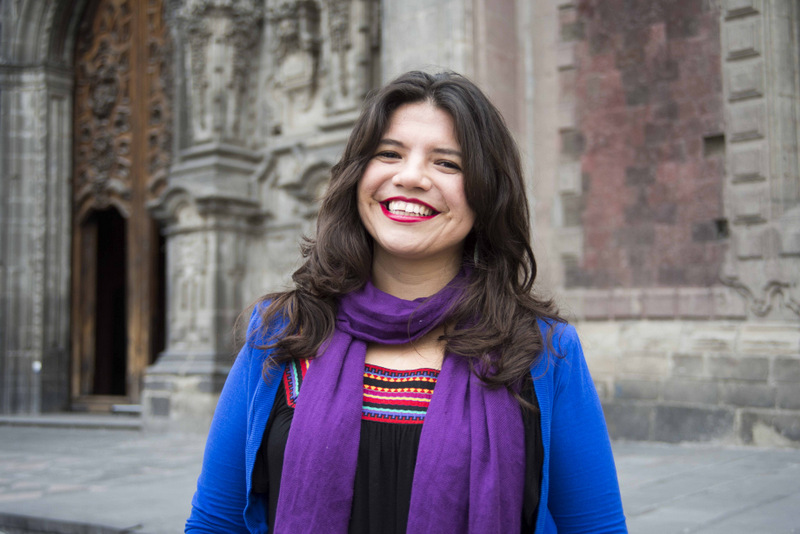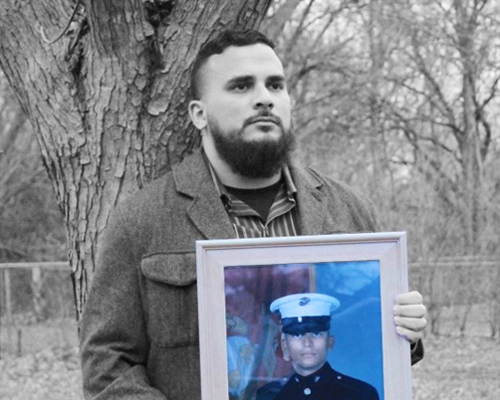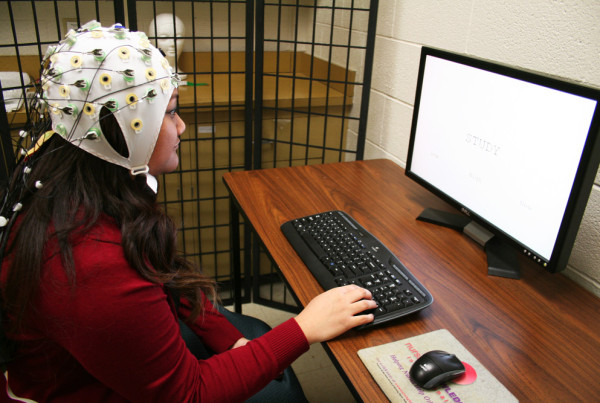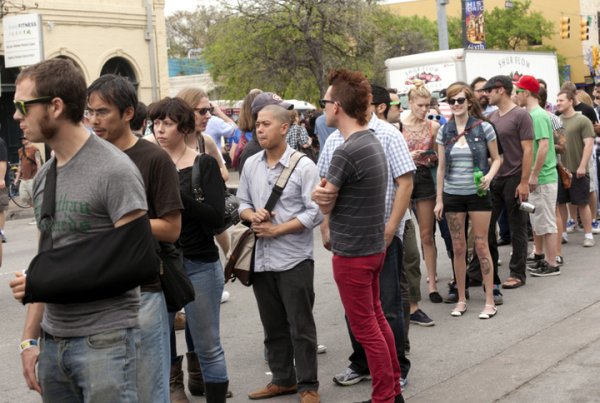Jill Anderson, an immigration scholar and author of the book “Los Otros Dreamers,” says that since 2005 more than half a million young adults between the ages of 18 and 35 have returned to Mexico after living in the U.S. for five years or more. This number includes those who have been deported, those who were de facto deported via a voluntary departure order, and those who decided to move back.
Either way, for those who spent their formative years in the U.S. and returned to Mexico, there are a number of psychological and cultural hurdles they’ll face when trying to assimilate. Azul Uribe has been back in Mérida for a little more than five years now. She says she’ll never forget the day, eight years ago, when she was picked up by an ICE officer in Utah.
“He arrested me on the spot and then he cuffed me. And it got progressively worse,”Uribe says. “They had to do a body check and I had never been naked in front of a stranger. I was balling hysterically the entire time and everybody was like, ‘What are you crying about, it’s a misdemeanor.’”
Uribe says the process was completely dehumanizing. Just the thought of being in the detention center brings her to tears. “This police officer just told me that I am a monster,” she says.
Uribe is Mexican. But she grew up in a little Latino community in Dallas. Her mother first brought her to the U.S, but returned to Mexico shortly after because she didn’t like the culture of the States. She was essentially raised by her grandmother. She says her mom sent her back to Dallas because she didn’t see much of a future for Azul in Mexico.
“She knew that I wasn’t going to be able to move out of poverty, and sent me to Texas where I would have more educational opportunities,” Uribe says. “It was tough. Like any kid I missed my mom, I missed my family. It becomes a lonely thing. But I understood as a migrant kid it was a reality.”
When Uribe was 22, she was arrested.
She was looking after some kids for a family from her church and one of them ran out of the house. She had to chase after the kid and restrain her. The family accused her of child abuse and she was sent to speak to a detective. The detective asked for her papers and when she couldn’t produce them, he brought in ICE. After questioning, Uribe agreed – under what she says was duress – to voluntary deportation.
“The U.S. government is a big pirate and you’re walking the plank,” she says. “They say, ‘Okay, it’s your choice. You’re gonna choose to jump in with the sharks. That’s sort of what a voluntary departure is when the judge makes you sign it.”
Because she was deported, Uribe’s not allowed to visit her family in Dallas. Her mother, brother and sister moved to Texas when her grandmother passed away. She says not being able to see them is tough. But maybe more than anything, she feels like she’s been locked out of her home.
Michael Zarate says the phenomenon Uribe describes is all too common. He’s a psychology professor at UT-El Paso who focuses on immigrant identity.
“We’re talking about how people identify themselves,”Zarate says. “And suddenly to be tossed aside and told you’re not good enough to be one of us and then put into an environment that they don’t know – it has to be traumatic.”
Daniel Arenas tries to help people that grew up in the U.S. and returned to Mexico make sense of their new surroundings. About five years ago, he turned his own reverse immigration experience into a non-profit called Dream In Mexico.
“Even though these individuals are born in Mexico and they have Mexican documents, they spent most of their lives in the U.S.,” Arenas says. “The experience that you obtain when you’re a teenager or when you’re a child is something that you identify with as an adult.”
For people who feel like Americans but aren’t Americans by law, the next few months could be bring more stress. State Sen. Charles Perry, R-Lubbock, has filed a bill that would let officers question the immigration status of anyone they’ve arrested.
A federal court in Brownsville is considering whether to block President Obama’s executive actions granting a temporary reprieve from deportation for some undocumented immigrants. That decision could come down as early as this week.















